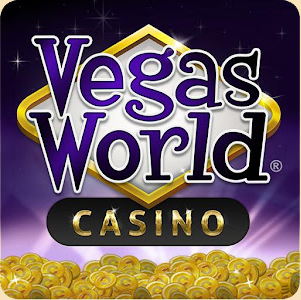Choose Your Poker Game
Play Instantly -
No Download Required
- Play FREE Multiplayer Poker and Win
- Texas Hold'em, 5 Seat, and 3 Card Games
- No Download or Registration Required
- Coins, Gems, and Exclusive Charms
- Social Play Rooms with Chat
- Just for FUN - Not real gambling
Games open in a new tab on our partner gaming platforms. All games are for entertainment only.
♠️ The Origins of Poker: From Persian Roots to Modern Tables
A Game Older Than America
Few games are as woven into the fabric of popular culture as poker. It's a staple of casinos, movies, and online platforms alike — but the story of poker's beginnings is surprisingly complex. While most people associate it with the Wild West, poker's roots stretch much further back, to a blend of European and Middle Eastern card games that evolved over centuries.
The earliest ancestor of poker may have been a 16th-century Persian game called “As Nas,” which used a 25-card deck with ranked hands and betting rounds. As Nas involved bluffing, a key feature that defines poker to this day. Meanwhile, in Europe, games like Poque (in France) and Pochen (in Germany) shared similar traits — players wagered on who held the strongest hand and often bluffed to win without revealing their cards.
From “Poque” to “Poker”
In the 1700s, French colonists brought Poque to North America, particularly to the French settlements in Louisiana. When the United States acquired the land that became the Louisiana Territory in 1803, New Orleans became a melting pot of cultures — French, Spanish, and American — and Poque found a new audience.
English-speaking settlers quickly adopted and anglicized the name to “Poker.” By the early 19th century, the game was being played throughout the Mississippi River region, especially on riverboats, where travelers and traders passed the time between ports. These floating casinos helped popularize poker across the expanding American frontier.
Early poker used a 20-card deck (Ace, King, Queen, Jack, and Ten in each suit) and was played by four players who bet on who had the best five-card hand. This limited deck made it easier to track probabilities, but as the game spread westward and drew larger groups, the standard 52-card deck replaced it around the 1840s.
The Wild West Era
By the mid-1800s, poker had become an essential part of frontier life. Saloon tables in dusty towns like Deadwood and Dodge City hosted countless games of five-card draw, and the image of the gunslinger with a hand of Aces and Eights — known as the “Dead Man's Hand” — became part of American legend. Poker wasn't just a pastime; it was a test of nerve, psychology, and intuition.
Players quickly learned that success depended as much on bluffing as on luck. This strategic element made poker distinct from pure games of chance, giving it an air of sophistication that helped it endure. During this time, new variations emerged. The draw poker format allowed players to discard and replace cards, while stud poker introduced community cards — elements that laid the groundwork for modern favorites like Texas Hold'em and Omaha.
From Riverboats to the Casino Floor
As America urbanized, poker found a new home in organized gaming halls. By the late 19th century, casinos began formalizing poker rules, and the game spread internationally. Soldiers during the American Civil War popularized poker across the country, teaching it to comrades from all walks of life. In the early 20th century, poker clubs and tournaments appeared from New York to San Francisco. While games varied by region, the essence remained the same: players bet on the strength of their hands — or their ability to convince others they held the best cards.
The Texas Hold'em Revolution
The most significant turning point came in the 1960s, when a variation called Texas Hold'em reached Las Vegas. Unlike older versions, Hold'em featured two private “hole” cards and five community cards, creating countless possible combinations and deeper strategic play. In 1970, casino owner Benny Binion launched the World Series of Poker (WSOP) at the Horseshoe Casino, turning poker into a professional, spectator sport. Television coverage in the 2000s — especially the introduction of hole-card cameras — transformed poker into a global phenomenon. Online poker platforms soon followed, allowing millions to play from home.
Why Poker Endures
What started as a mix of Persian, French, and American influences has become one of the most beloved card games in history. Poker thrives because it combines luck, psychology, skill, and risk — a blend few other games achieve so perfectly. Whether played around a saloon table in 1870 or on a computer today, poker captures the same essence it always has: a battle of wit and nerve, where the right bluff can be worth more than the best hand.



